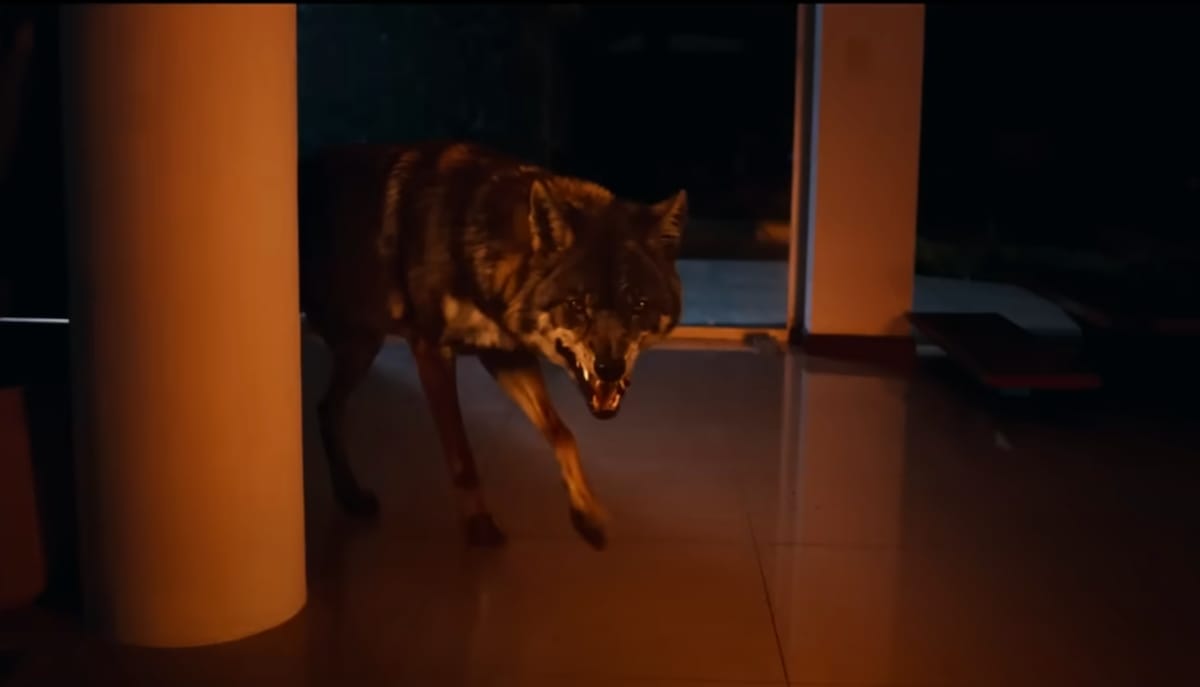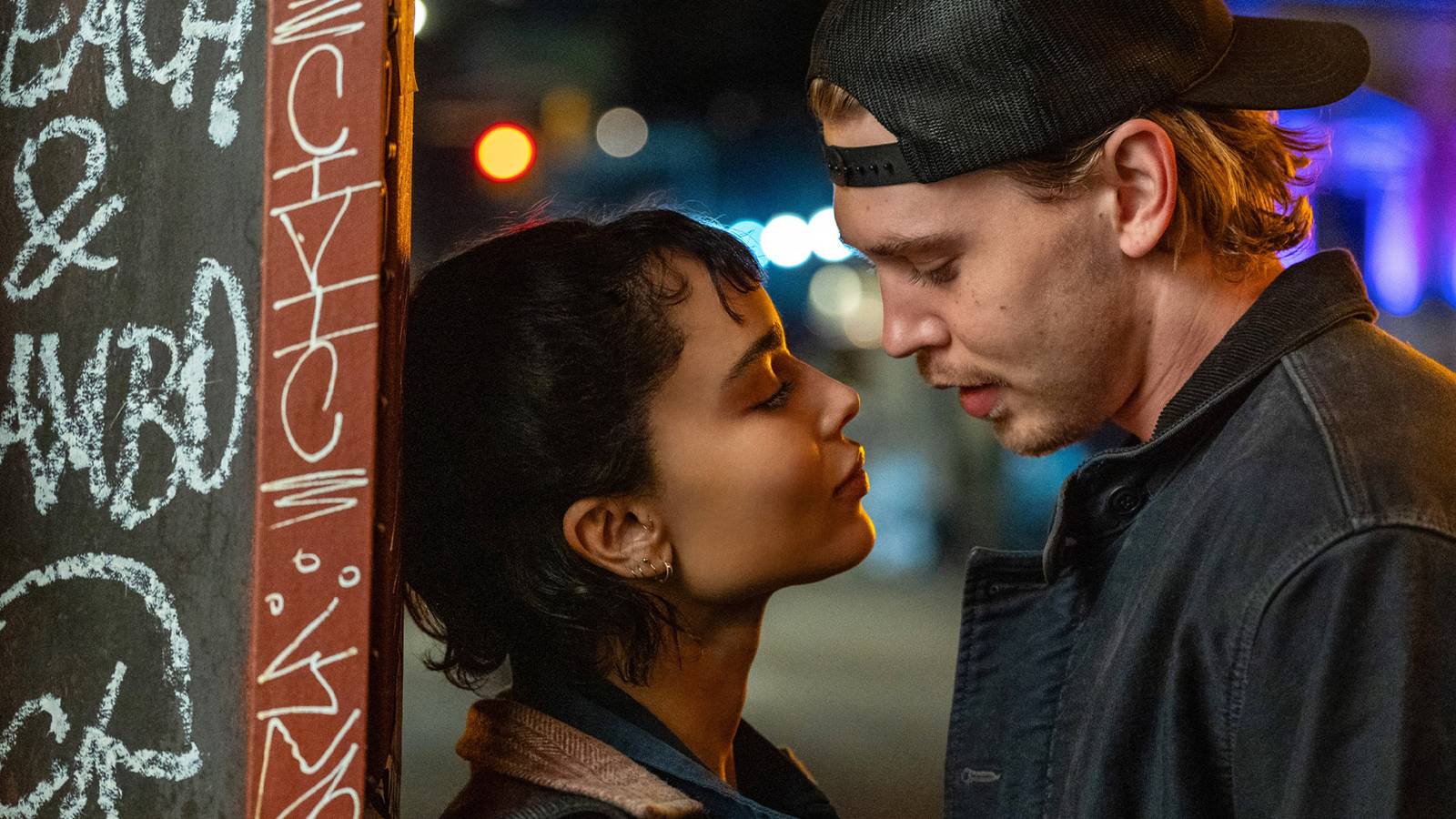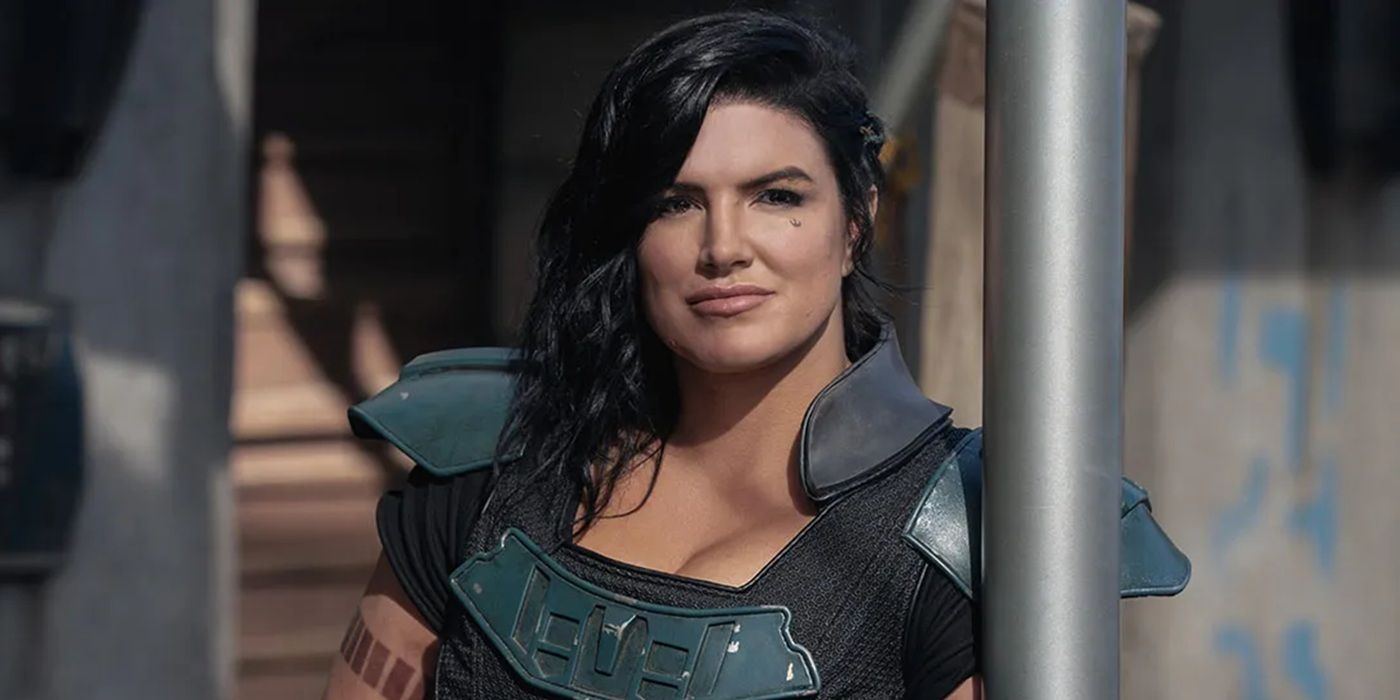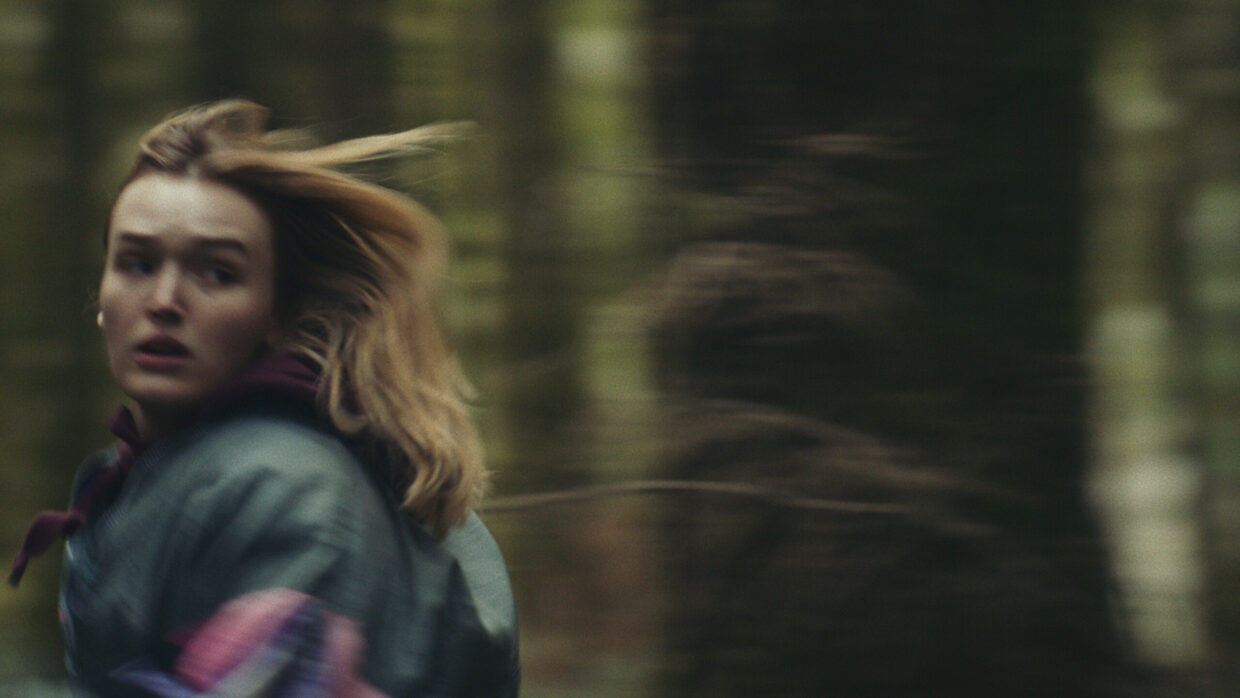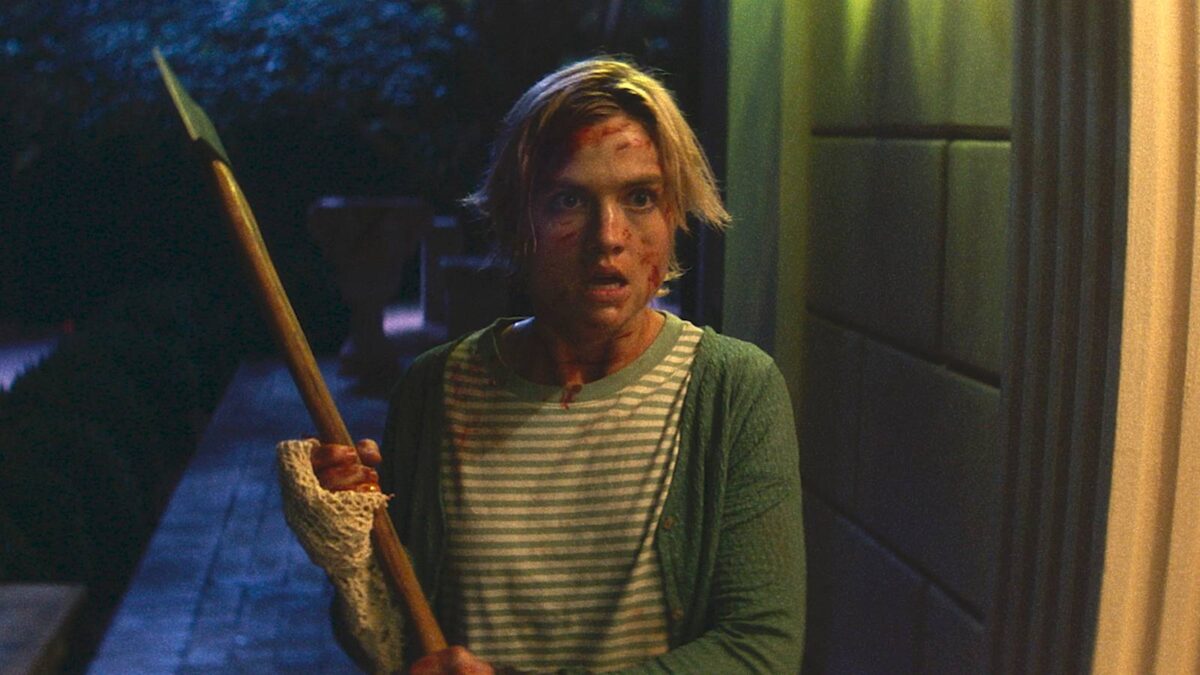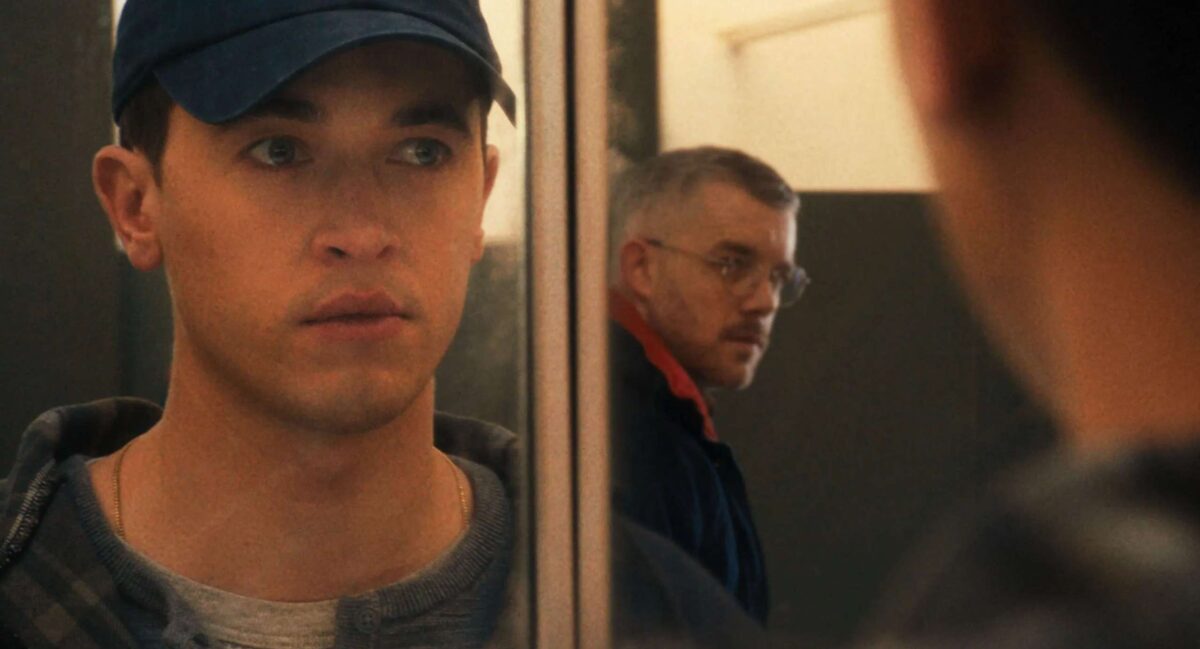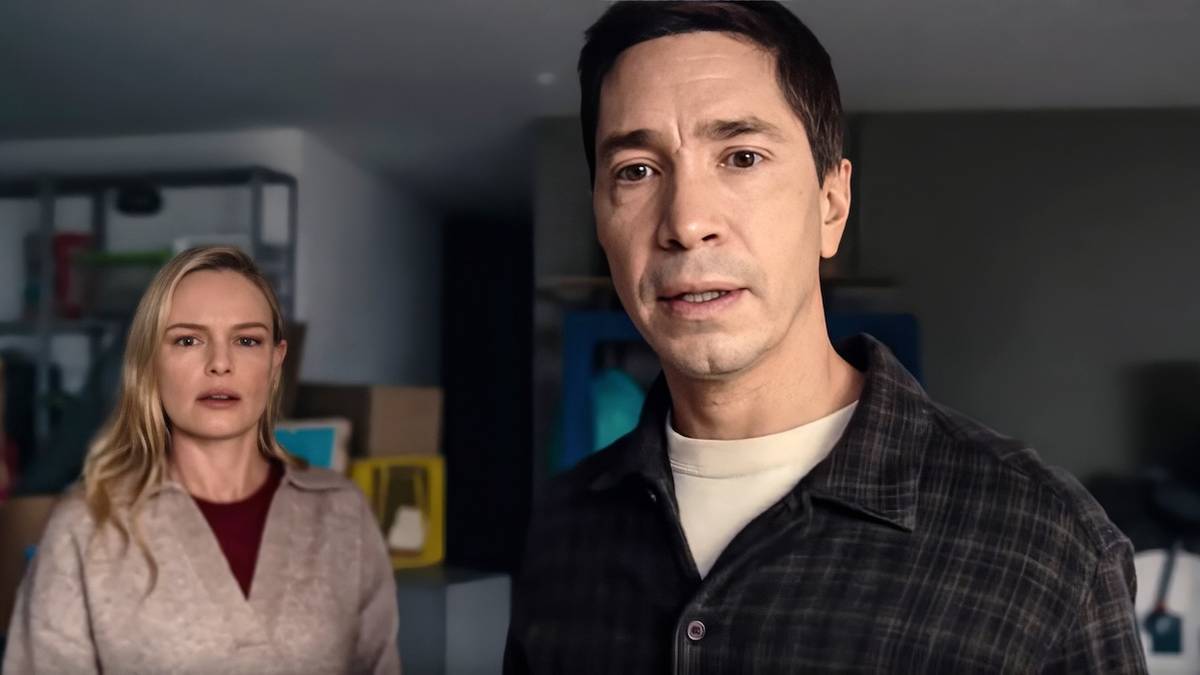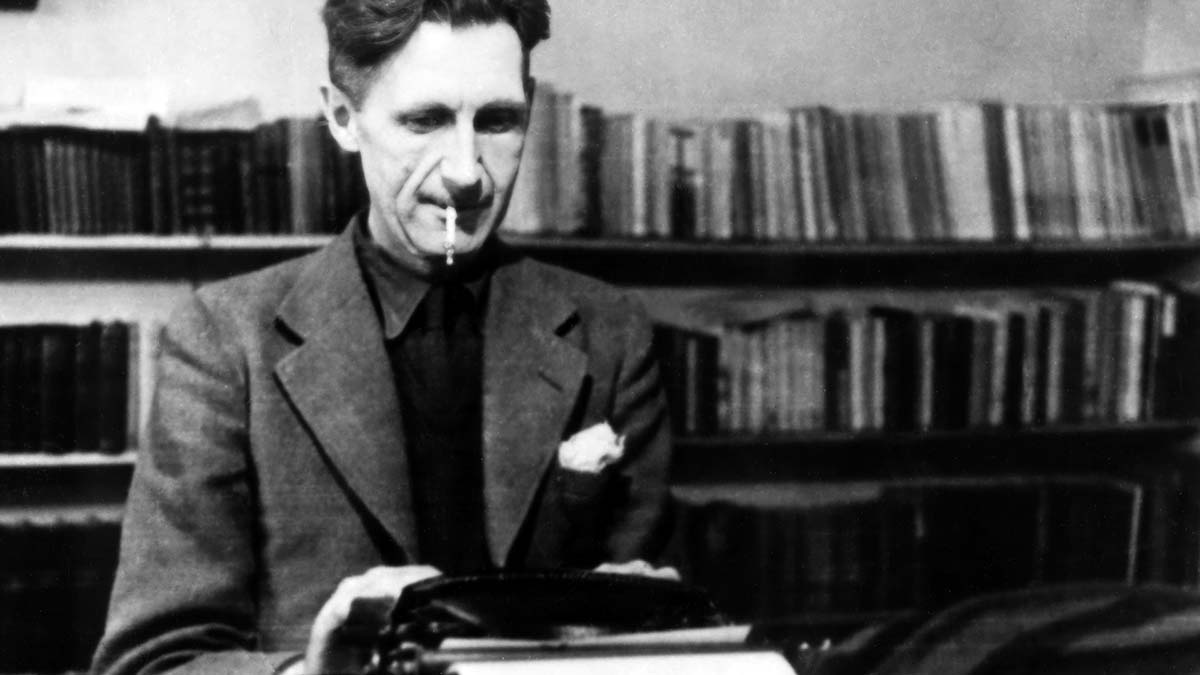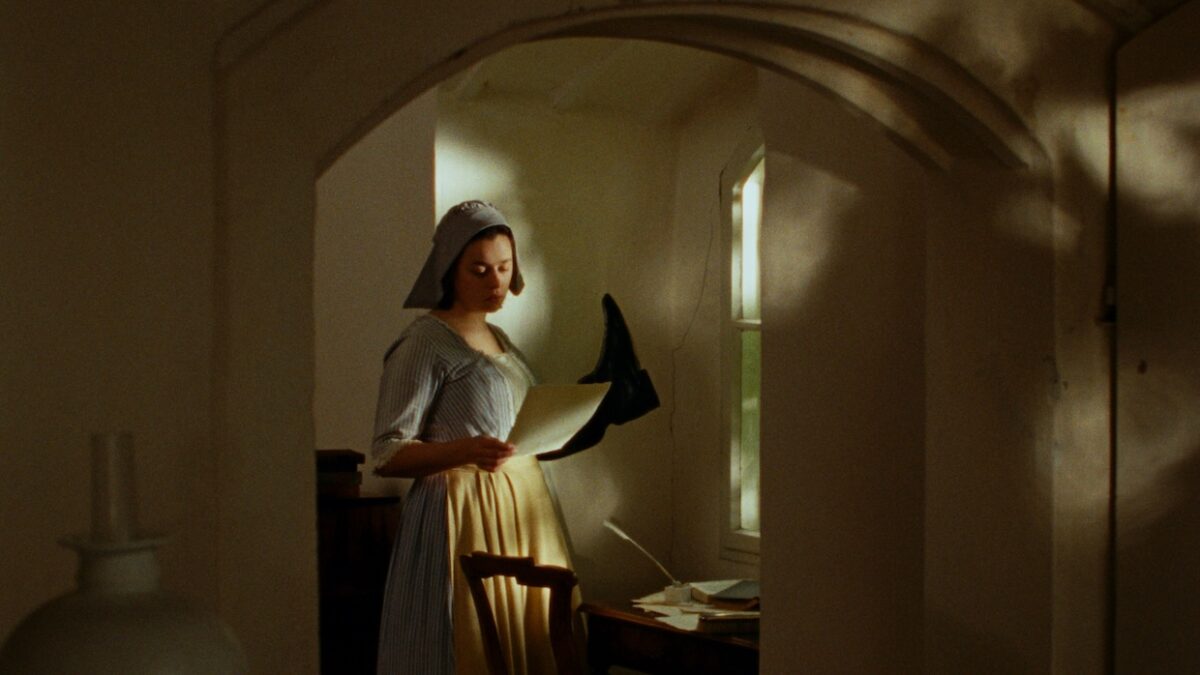
Interview: Julian Radlmaier on Phantoms of July
Aug 26, 2025
Paula Schindler in Phantoms of July
The films of Julian Radlmaier have all been infused with a specific kind of longing for a better future in the sense of Marxist utopias. From his early films—A Spectre is Haunting Europe (2013) and A Proletarian Winter’s Tale (2014)—to the snappy meta-commentary Self-Criticism of a Bourgeois Dog in 2017 and 2021’s Bloodsuckers, aptly sub-titled “A Marxist Vampire Comedy,” Radlmaier has perfected the political allegory for our day and age. Static tableaux paired with outrageously funny one-liners (“Germany is sinking like the Titanic and we’re Leonardo DiCaprio”) make the films meme-friendly without compromising their devotion to labor politics and community.
For his new film, the Locarno 2025 premiere Phantoms of July (the original title translates to Longing in Sangerhausen), Radlmaier teams up with cinematographer Feraz Fesharaki (What Do We See When We Look At the Sky?) to break away from the steady formalism and irony critics and festival audiences alike expect from him. Sangerhausen, a town in the German province of Saxony-Anhalt, is known thanks to the poet and philosopher Novalis, also known as the symbol of German Romanticism, but Radlmaier puts the young woman who cleans his chamber pot, Lotte (Paula Schindler), at the center of the film instead.
Phantoms of July is shaped by encounters: between Germans and foreigners, past and present, politics and ethics, a blue stone and a stone swallower, a camel and a car. The narrative itself resembles a city symphony of ghosts, with echoes from the 18th century coming back to haunt the present.
Filmmaker: What struck me most about Phantoms of July is how compassionate it is towards its characters, while retaining the seriousness and politics found in your previous work. Is there a newfound tenderness with which you now address the current state of the world?
Radlmaier: Maybe. There were subterranean strands of tenderness to be found in my previous films, or perhaps characters towards whom I was more affectionate than others, but the satire was more prominent. All of them, especially Bloodsuckers, share this explanatory world-building, in an almost Brechtian way. Phantoms of July has a more modest approach. It’s still a political film, but the politics work differently.
Filmmaker: A pandemic later, amidst global unrest and ongoing wars since 2021 when Bloodsuckers premiered, would you say your writing has changed? There certainly seems to be less satire and dry irony.
Radlmaier: I have, of course, noticed that the rise of the right in Germany is leading the country down a very dangerous path, but instead of analyzing the state of things, I wanted Phantoms of July to be with the characters who have to live under these circumstances. While researching in the small town of Sangerhausen, which is one of the strongholds of the right-wing in the country, I met a lot of immigrants. I wanted to be in solidarity to their experiences, but to also include a German character, Ursula, and see if they can switch sides. It’s important to empathize with the difficulties people face. Especially in that region, there’s a lot of unemployment and the atmosphere is very hostile and full of resentment. The utopia of this film is related to a theme of longing, of dreaming of another life, which in some way would connect these characters. Maybe there could be an emotional ground for a possible solidarity.
Filmmaker: So the idea to include Novalis and these Romantic streaks in the script came later?
Radlmaier: In that region, both Romanticism and fascist nationalism have very strong roots. I discovered that Novalis was born in a small castle near Sangerhausen while I was there, but I wasn’t interested in him as an elitist figure, a 18th century aristocrat. So, I invented the character of Novalis’s maid, Lotte, who has to clean his chamber pot at the beginning of the film. As we later find out, she’s supposed to be the great-great-great-great-great-great-grandmother of Ursula, the protagonist. Storytelling is many things, but it is reconnecting to the sufferings of past generations, or like Walter Benjamin said, also about keeping the tradition of the oppressed alive. Ursula reconnects with her great-great-great-grandmother and becomes aware of how, suddenly, she is now inscribed in a proletarian history that is usually forgotten.
Filmmaker: At one point, Ursula admits she didn’t even know she had a great-great-great-grandmother! She is very much grounded in the present until the past comes to speak to her, literally. I appreciated that the film sees ghosts as a necessary intervention on behalf of the past, but also as extending a helping hand to the present.
Radlmaier: Yes, reconnecting to forgotten dreams or to past possibilities is a theme I had already explored in my previous films, but in Phantoms of July there is something more hopeful, something we can hold on to, in order to create longstanding links between people [that weren’t there before].
Filmmaker: I’m interested to hear more about your view on Romanticism as such, as the movement is bound by longing and nostalgia, attempts to re-enchant the world after it’s fallen prey to industrialization and individualization. I felt a similar tinge in how you talked about human connections just now. But at the same time, even if your films address the past in very tactile ways, they’re not nostalgic per se.
Radlmaier: Romanticism is very ambivalent, especially in Germany. The Romantic movement also invented nationalism. If you read Novalis, there’s this Eurocentric Christian re-discovery of the Middle Ages, a lot of underlying exceptionalism. I’m not at all nostalgic for this. But what interests me in Romanticism is the discovery of modern subjectivity, and, in Novalis, the fact that he was also a geologist. This whole idea of staying very close to the material world is also appealing to me. He wrote in a fragmentary style; his books have poems, scientific descriptions and fairy tales, the freedom of which speaks to me on the level of form. That said, I’ve always found the longing Novalis writes of to be very elitist: there’s the poet towering above everyone else, in deep resonance with the universe! Instead, it was important to show proletarian people feeling the same, to transform this longing from elitist into egalitarian.
Filmmaker: There’s also another shift that occurs in the film. The blue flower of Novalis appears as a blue stone exchanged from person to person. With this, symbolism becomes material. The camera lends a similar kind of attention to cherries as it does to landscapes, camels, flora and fauna alike. If you put all those images together in a single frame it might not make sense, but in the course of the film they weave a connection that is more than just allegorical. What was it about those particular material and organic objects that you saw as tools of storytelling?
Radlmaier: My cinematographer Faraz Fesharaki and I wanted to give our attention to the material world and the physicality of Sangerghausen. But not only that—we wanted to make a leap into the fantastic. The [visual] associations we established were a result of a rather poetic way of rearranging physical elements we encountered according to the logic of the imaginary. To give you an example: what Novalis is most famous for is, of course, the blue flower, which was the symbol of longing, of wanting something without knowing what it is exactly. At some point [of the script development], I was reading a book about strange jobs of the 18th century and learned about a guy who was a stone swallower. He supposedly went all around Germany, swallowing stones for money. People would pay him for this entertainment. Then, I went to a local museum with geological findings and saw these blue stones, so naturally, I thought maybe the blue flower could be a blue stone, circulating between the characters, and one of them would be a stone swallower. It was a lucky coincidence that the big heap over Sangerhausen resembles a pyramid in shape and there was a camel farm close by. In a way, the connections were already there!
Filmmaker: Most of the film is exterior shots. Since this is the first time you work with Faraz Feshraki as a cinematographer, was there something specific about shooting in Sangerhausen and the region, in that summer light as well?
Radlmaier: My previous film had a static, almost theatrical look. I was more interested in tableauxs—a lot of movement inside the frame, but not of the camera. That was something I wanted to change, and this is also the reason I decided to work with someone else to give it dynamism. Faraz and I sought to create a lighter, flowing texture, so we had to develop a visual language that would allow for these digressions through pans and zooms. Formalism, for me, comes from things I can discover with my senses, with my eyes and ears. There’s a political aspect to this possibility arising from the aesthetic choices, not simply from the narrative as has been the case with my previous films.
Filmmaker: There’s a political gesture in the use of a panning movement within a static scene: the perspective changes, but the camera’s “subjectivity” opens up to a wider horizon. Instead of an omniscient narrator, Phantoms of July has a multitude of perspectives. Do you think of film form in terms of intimacy when the characters can eventually share the same shot?
Radlmaier: I’m always more interested in groups as characters and having a kaleidoscopic point of view, but even more so now. Considering what this film is about, the final image, when the characters are framed sleeping in the car together, is also its most central one, for me at least. Learning to share the cinematic frame is, in a way, learning to share the world with others, and panning is one way to show it. With a pan, we digress from the actual point of view of a character who’s stifled by economic pressure, from a world that feels closed-up, towards a more poetic image. In that way, I treat the cinematic form as something that creates pockets of air for the characters, an opportunity for contemplation that would help them somehow. We can’t heal society or the planet, but we can perhaps reset the way we experience the world by seeing things differently.
Publisher: Source link
Erotic Horror Is Long On Innuendo, Short On Climax As It Fails To Deliver On A Promising Premise
Picture this: you splurge on a stunning estate on AirBnB for a romantic weekend with your long-time partner, only for another couple to show up having done the same, on a different app. With the hosts not responding to messages…
Oct 8, 2025
Desire, Duty, and Deception Collide
Carmen Emmi’s Plainclothes is an evocative, bruising romantic thriller that takes place in the shadowy underbelly of 1990s New York, where personal identity collides with institutional control. More than just a story about police work, the film is a taut…
Oct 8, 2025
Real-Life Couple Justin Long and Kate Bosworth Have Tons of Fun in a Creature Feature That Plays It Too Safe
In 2022, Justin Long and Kate Bosworth teamed up for the horror comedy House of Darkness. A year later, the actors got married and are now parents, so it's fun to see them working together again for another outing in…
Oct 6, 2025
Raoul Peck’s Everything Bagel Documentary Puts Too Much In the Author’s Mouth [TIFF]
Everyone has their own George Orwell and tends to think everyone else gets him wrong. As such, making a sprawling quasi-biographical documentary like “Orwell: 2+2=5” is a brave effort bound to exasperate people across the political spectrum. Even so, Raoul…
Oct 6, 2025


